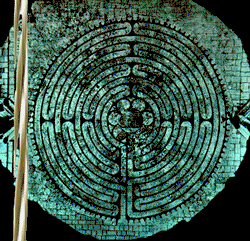
In my formative years as an avid music enthusiast my access to the rock world was via the weekly publication
Sounds.
I began with
Melody Maker, but it was aimed at those who were interested in what strings Richie Blackmore favoured; I tried
NME but couldn't understand when reading a review of a Stranglers' gig why the author was deconstructing the life and works of Søren Aabye Kierkegaard.
Sounds was just right.
And long before the days of cover mounts, these weeklies that adopted the portentous style of broadsheet newspapers, would entice their readers into getting their hands on free music by publishing collectible tokens on a weekly basis for a month or so.
Save 'em up, send 'em off, and hey, about two months later you get your free record through the post.
Which is how I came to be in possession of this.
And I still love it.
Released in 1978, the
Sounds Album Vol 3: Can't Start Dancin' was a collaboration with Stiff Records, one of the more exciting of the new wave of independent record labels that were rapidly springing up on the back of punk ideology and enthusiasm.

Fourteen tracks, performed by seven Stiff artists; beginning with their big home grown star, Ian Dury, who gives away his first single release with the Blockheads: 'Sex & Drugs & Rock & Roll ', and that excellent anthem to hedonism was juxtaposed with the equally wonderful 'Razzle in my Pocket', the single's original flipside, and my favourite all time Dury track.
Back in 1985, I shouted myself hoarse at Glastonbury during one of Ian Dury's frequent reunions with the Blockheads, demanding they perform 'Razzle in my Pocket'.
They didn't.
I wonder if that was the reason why lots of people threw mud at them...
But if you've never heard the track; a witty monologue, with the narrator telling the story of how he went 'out on the nick' in 'Romford', and what happened to him when he 'put his thieving hand on something rude', well, find out the rest for yourself.
I'm not gonna spoil it for you.
Mickey Jupp is next to belt out a couple of songs, showing how punk allowed for a lot of fringe and peripheral musicians to gain some appropriate attention.
Produced by Nick Lowe, Mickey Jupp, as a member of the ambiguous pub rock genre, suddenly became interesting after being in the music business since the early sixties.
And his songs included here reveal just how professional and tight many of the pub circuit musicians were at this time, as they're both really fine numbers.
The real highlight of the collection can be heard next, courtesy of a pre-'Stop the Cavalry' Jona Lewie, with his wonderful song 'Denny Laine's Valet'.
I have listened to this song on and off for the last thirty years, and I still haven't got a clue as to what the fuck he is going on about, but it really is true genius.
Wreckless Eric's contributions are a couple of typifying numbers that capture the excitement of his early songs. Destined to be massive by Stiff, he shyed away from the manner in which they marketed and promoted him; and became one of the most peripheral of all cult singer songwriters, seemingly enjoying his less than commercial relationship with the music industry.
The track 'Semaphore Signals' that appears on this collection was produced by Ian Dury, and a fine job he made of it; it really is one of Eric's stand out tunes from this part of his career.
Talking of expectancy and the desire for big things, Rachel Sweet was also heavily promoted by Stiff as being the next Patti Smith or something.
Listening to her sickly voice now, it's amazing that she even made the Stiff roster, let alone being singled out for success.
(I guess like Branson's Virgin camped just down the road from Stiff, what everybody really wanted was number ones. Branson got lucky with 'God Save the Queen', Stiff made it with Dury's 'Rhythm Stick', but they kept on promoting more 'commercal' artists, this I believe was responsible for a lot of ex-Stiff artists recalling unhappy times with the label.)
Sweet was a kind of indie Britney figure.
Peaches she wasn't.
Where is she now, I wonder?
Lena Lovich on the other hand had a pretty successful career.
Starting as a funk singer in the early seventies, the English, Serbian, America-born artist was soon convinced by Stiff to adopt a punky look.
It paid off, and she achieved a commercial hit with the upbeat song 'Lucky Number'.
I gained a free ticket one time to see her perform at the Lyceum in Hammersmith.
I left after two numbers and chanced my luck at getting into the Odeon down the street where Blue Oyster Cult were playing.
I failed.
Would I have left the Lena Lovich gig if the ticket wasn’t free?
Probably, yeah.
Her second track here really sounds like it should have been included on the
Broken Glass soundtrack; as Lovich performs a magnificent impersonation of Hazel O'Connor.
The Rumour, a support band for many solo artists of this time, were normally associated with singer Graham - 'Hey Lord don't ask me Questions' - Parker.
It does sound like Parker sings lead on the first of their tracks here, but I'm unable to verify this.
The Rumour are yet another example of a band that were really known from the pub circuit - it must be said, the pub music scene was thriving at that time, and venues such as The Hope and Anchor in Islington, The Red Cow in Hammersmith and The Falcon in Camden Town were the best places to see cutting edge, wild and often innovative performances in London in the mid to late seventies.
The Rumour's second track on this collection, 'Loving You is Far Too Easy', reminds me of this time probably more than any other track on the album; as it was a sound so indicative of those times; even more so than more successful bands such as The Damned or The Dickies.
7 Stiff Artists -
The Sounds Album Vol 3: Can't Start Dancin' (1978)
Sex & Drugs & Rock & Roll - Ian Dury & the Blockheads
Razzle in my Pocket - Ian Dury & the Blockheads
Making Friends - Mickey Jupp

You Made a Fool Out of Me - Mickey Jupp
Denny Laine's Valet - Jona Lewie
I'll Get By in Pittsburgh - Jona Lewie
Semaphore Signals - Wreckless Eric
I Wish it Would Rain - Wreckless Eric
I'll Watch the News - Rachel Sweet
Cuckoo Clock - Rachel Sweet
Monkey Talk - Lene Lovich
Momentary Breakdown - Lene Lovich
All Fall Down - The Rumour
Loving You is Far Too Easy - The Rumour
Get a copy of this never commercially released Stiff sampler as a vinyl rip @256kbs
hereIf anyone has got a clue as to what the hell 'Denny Laine's Valet' is all about, I'd love an inkling...
 I've been listening to a fair bit of Black Uhuru lately, inspired in part by some recent posts from the Dust Devil over at YoungMossTongue; including an album I have wanted to replace for a long time: Black Sounds of Freedom. Fantastic.
I've been listening to a fair bit of Black Uhuru lately, inspired in part by some recent posts from the Dust Devil over at YoungMossTongue; including an album I have wanted to replace for a long time: Black Sounds of Freedom. Fantastic.
























































